by Sabyn Javeri Jillani
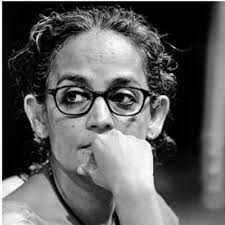
In April 2020, Arundhati Roy wrote in the Financial Times, “Historically, pandemics have forced humans to break with the past and imagine the world anew. This one is no different. It is a portal, a gateway between one world and the next.”
Her words reminded me of the state of Barzakh, the transitory stage between this world and the next. Separating the living from the hereafter, it’s often described as a veil or a bridge between death and resurrection. The Sufi philosopher Al Ghazali described it as a place where souls are suspended in time, neither in hell nor heaven, resembling the Catholic theological state of limbo. It is a similar state that I find myself in as I write this, despite the fact that the new year started off on a hopeful note.
But can a change of date really shake off the turmoil and confusion of last year? 2020 was an year of loss for so many of us. The world events around me seemed to reflect my inner state as I too experienced a deep sense of personal loss. There was a kind of implausible horror that encircled most of us as streets became empty and touch disappeared from our vocabulary. The withdrawal of the world reflected the inertia we felt inside as life came to a grinding halt. I mourned with the rest of the world, the loss of an era. Although the optimists amongst us reminded us that, ‘endings are new beginnings’, it was hard not to think of the pandemic as the ‘beginning of the end’.
Life as we knew it ceased to exist with the shutting down of offices, schools, restaurants, cinemas, parks, and all corridors of human contact. I found myself alone in a new country, in a new job that had suddenly transitioned digitally, remote schooling two children, while learning to adapt my own work life balance online. But perhaps what was most disturbing about this sudden disruption was that I was suddenly responsible for guiding my young children through what seemed the most tumultuous times of our generation. I had neither seen the horrors of the subcontinent’s partition that my parents had witnessed nor the terror of the world wars, plagues or famines in India that my grandparents had. The closest I had come to tragedy was losing both my parents. And the closest I could imagine my children experiencing disaster was losing their WIFI connection. And here we were, suddenly, faced with a global pandemic.
And that too, in an age of tech where Mars was supposed to be the next stop. But instead a virus had changed the course of scientific research. Instead of discussions on A.I, we were now engaged in debates about the contagiousness of Covid-19. Travel had halted, plans disrupted, families separated. Uncertainty reigned. The more I tried to make sense of what was happening the more nonsensical it seemed. A pandemic in this day and age, I found myself thinking incredulously.
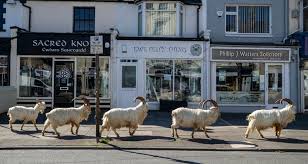
And then came the lockdowns, food shortage scares, toilet roll memes, amidst horrifying death tolls. Paranoia took over as we feared the stigma of catching covid-19, the anxiety of contagion, social distancing and quarantine, job losses and financial insecurities. Isolation began to set in. For the first time in my life I feared the future. I was not alone. All over the world there was a deafening hush as streets fell silent. At one point pictures began to appear of animals reclaiming the streets in the absence of humans. But they retreated soon enough for then came the balcony singing. People across the world tried to reclaim some sense of civic unity by singing from balconies or exercising in the streets, cheering each other on from their windows. It was a reminder of human resilience and I found myself thinking of a poem by the late Pakistani poet Faiz Ahmed Faiz:
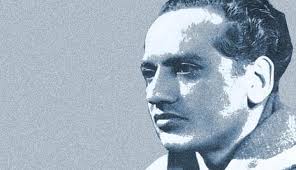
“Dil na umeed to nahin, nakaam hi to hai
(One may lose but one’s heart doesn’t give up hope)
Lambi hai gham ki sham, magar sham hi to hai.”
(Because no matter how dark the night is, it doesn’t last forever)
And so it was with this spirit that I watched the events of 2020 unfold. They reflected the sudden and incomprehensible changes in my own life that I had not had time to absorb, till then. Now, I felt as if someone had pressed pause. And as doctors and scientists all over the world announced that till we found a cure, prevention was the only way, we made peace with a changed world. A world in which there were no solutions, only precautions. It was with this mindset that I began a new chapter of my life. A chapter that I titled the state of Barzakh. A time to pause. During this time I found it hard to write. Perhaps because writing comes from living. And we were not living. We were watching, witnessing, observing but there was little time to process. Things seemed to have paused momentarily. And so I read. As my children and I learnt to rely on ourselves, emotionally and economically in these changed times, books kept us company. To escape from the harsh realities around us, we turned to fantasy. We rediscovered Harry Potter and Tolkien. Later I reread the diaries of Virginia Woolf and Sylvia Plath and the autobiographies of Doris Lessing, finding courage in the voices of women who had lived through so much more.
Moves are never easy and during a pandemic even more difficult. Circumstances were such that we had to move houses. We were new to the UAE and with the restrictions on public transport and curfews and lockdowns, it was incredibly difficult to house hunt. And even when I did manage to see a few places, I discovered at the age of forty that being a Pakistani woman who had been married at a young age, I had so far in my life never made a big financial decision on my own. As world leaders floundered in uncertainty, muddling through bad decisions that put hundreds of lives at risk, I consoled myself with the thought that if the leaders of the free world could make such huge blunders, what worse could I do. Somehow at the end of summer I had managed to find a house, settle my two children in school and come to terms with being the one at whom the buck stopped. Along the way I found there was much truth to the saying ‘the kindness of strangers’ for the pandemic seemed to have made us all pause and reflect on the humanity and generosity that made life worth living in these depressing and uncertain times.
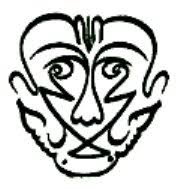
Personally and publicly, it was a year of reckoning. Of self-reliance. Of shortcomings and failings, and of realizing that one can’t escape mistakes or failures. They are part of our growth. It’s how we pick ourselves up after the fall that matters. The year 2020 certainly taught us that.
And while there were many personal failings, there were also public ones. The failure of Western leadership in the USA and UK was perhaps the most shocking for our collective consciousness. As the pandemic raged through continents we saw the leaders of the free world deny its existence. We saw the Prime Minister of the UK, Boris Johnson cautioned against close contact. We saw leaders like Trump defy scientific and medical advice in order to oversimplify a problem whose enormity they failed to comprehend. We also saw them succumb to the virus, though both made full recoveries. But nevertheless for those of us who grew up admiring western style democracy and its belief in collective resolution were left shocked at the dismissive, irrational, irresponsible and inconsistent behavior of these world leaders. Closer to home, India which prides itself as the biggest democracy in the world, displayed shockingly authoritarian and impulsive decision making with impromptu lockdowns. Thousands of people suffered as they were stranded away from home without food or shelter. While in my home country of Pakistan, mosques continued to throng with crowds of worshipers in defiance of social distancing, even as doctors crumbled under the weight of the ill, battling the frontlines without proper protective gear. Conspiracy theories reigned supreme.
And while the Pakistani cleric Tariq Jameel blamed Pakistani women and their clothing as the reason for God’s wrath in the form of a pandemic, in other parts of the world people revered the leadership of female governance. Leaders like Angela Merkel and Jacinda Ardern and Tsai Ing-wen made headlines with their decisive and responsible leadership, their emphatic and logical response in containing the virus. While there may well be other factors than gender that led to their success, one can’t help but think that they displayed a much needed common sense that the world’s top male leaders seem to lack at this crucial time. As a woman who was just getting used to making decisions on her own without the input of any male authority figures, it provided a much needed confidence booster. For women of my generations it proved once again that the stigmas of being termed too emotional were unjust gendered biases for if anything at all it was leaders like Trump, Johnson and Modi who acted impulsively without foresight.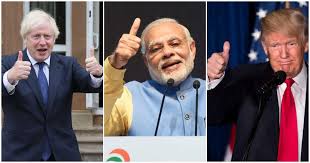
But it wasn’t just bad leadership that 2020 exposed. Other power structures and internalized biases were called into question. Racial capitalism and slavery was called out. White supremacy was called out. The killing of George Floyd brought home the debate of institutionalized racism in the global North and internalized racism and colourism in the postcolonial world. Despite the pandemic it brought people onto the streets. They vowed not to be silenced again. Statues of those with historical ties to slavery were removed as public outrage increased. Many still defended it and academics like Corinne Fowler came under fire for publishing research that traced historical links to slavery. Journalists and activists suffered. In the postcolonial world, people joined in the black lives movement but this unearthed a new debate. Many celebrities were called out for their own internal racism. Colourism and capitalism was called out. Corporations and manufacturers of whitening products were forced to change the labelling on their whitening creams that blatantly prompted colourism to rebrand ‘fair’ to ‘glowing’. It was a small superficial change and a cosmetic victory yet it gave people the sense that their voices mattered. In Pakistan people tried to call attention to their own ethnic racism and violence by calling out the atrocities against the Shia Hazaras and the missing ethnic Baloch who were being persecuted by the State. Many journalists were threatened and human rights activist Karima Baloch lost her life, proving that freedom of speech was still a far off dream in pseudo democracies like Pakistan.
Later in the year more disasters hit worldwide, and mismanagement reigned. Our faith in the free world continued to plummet. Earlier in the year when we saw protestors march into the streets for their civil rights, it gave us hope. But when we saw rioters march into Capitol hill, we recoiled with horror as the ideals of ‘freedom’ and ‘liberty’ that we associated with the ‘civilized’ world were tarnished. Was this the end of Western order or the end of hope? Liberals all over the world felt disillusioned.
But as Emily Dickinson wrote, ‘“Hope” is the thing with feathers, That perches in the soul, And sings the tune without the words, And never stops – at all… ‘ Disturbing as the year was, there was also something very liberating in owning up to the shortcomings of our ideals. It freed us from the weight of ‘archetypes’ as Jung would have called it, leaving us free to reimagine what power and strength meant at a time when the West no longer seemed capable to lead the global world order.
The failures of 2020 gave me courage for it was a reminder that although we can’t escape crisis, whether it’s governments, hospitals or our own personal lives, it’s how we handle the outcome that defines us. It was a year of self-reliance, of keeping the faith when there was no hope in sight. Staying resolute in the absence of any concrete or reliable knowledge with an information overload of news, contradictory advice and conspiracy theories; we all had to learn rely on our own best judgement and trust our instincts. We had to learn that the only certain thing about our times was the uncertainty.
But uncertainty does not necessarily mean insecurity. And this was an important life lesson that the pandemic taught us. We learned to be grateful for what we had, for the ‘now’ rather than for the ‘if and when’. Life changed in 2020, but it did not stop. We learned to transition digitally making the best of technology, of course the inequalities were stark here for those who couldn’t do so suffered. And even amongst those who could, the burden fell on the women who became the primary caregivers. Many of us learned to juggle our children’s’ remote schooling while managing our own workload and housework. Many suffered domestic abuse physically and mentally cooped up with partners who had lost their jobs. So many of us jostled for space like pots and pans in a crowded cabinet, anxious in these times of economic and emotional uncertainty. So many had no homes to shelter in at all. So many favorites restaurants shuts down, shops closed and businesses went under. But many of us also realized that security lay in the knowledge that no matter what tomorrow brought, what mattered most was the present.
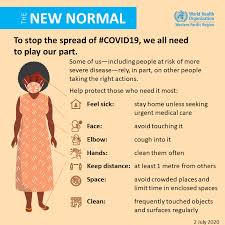
And even those who can’t make peace with the ‘new normal’ must at times find themselves thinking what is it that they long to return to? Overcrowded trains, long commutes, three hour long meetings where we sat still till our bums became numb, the mad dash of an impossible work-life balance, as we tried to balance family time while getting pending emails out of the way as we did bedtime on autopilot? The crazy networking and socializing that made you wish you could split yourself in two? Yes, zoom fatigue is real and while I, too, long to see my friends who live abroad, and I’m homesick for travel – a feeling the german word ‘fernweh’ (a familiar desire for travel to distance places) describes so well. And I miss the days when I could walk out of the door without worrying about social distancing, or when hand sanitizer was something I associated with picnics or compulsive hand washing disorders, or when the ‘national sterilization program’ was something associated with population control in India rather than the nightly cleaning curfew in the UAE where I now live, I wonder if we can ever really back to the ‘old’ normal, now that we know what we do.
I still find it amusing that when I enter my bank or the ATM booth I am required to wear a mask, something I associated with bank robberies but I also like the fact that I don’t have to worry about dressing up my face before stepping out anymore. Or the comfort of chucking out my heels and wearing my fluffy bunny slippers under a sharp suit, or a crisp white shirt and dark blazer over pyjama bottoms on zoom. Multitasking has taken on a whole new meaning as I cook or wash dishes while attending a meeting, or participate in conferences from the comfort of my home. What was impossible before has suddenly become possible.
Yes of course something is missing. Perhaps it is the sense of freedom or free will that is so important to us humans. Or maybe it is this underlying grief that circles my heart when I look outside my window and see no apparent devastation yet know that death is all around me. Perhaps it is the dread that someone I know will become another statistic in the daily death toll of covid related deaths. But then I remind myself that life is not just about existing. It is about being aware of our existence. And so I focus on the now because if the pandemic has taught us anything, it is that we can never take our present for granted. The ‘now’ is all we have though we tend to live in the past or in the future, suspended in time with or without the pandemic state of barzakh. We are always evaluating options, searching for solutions, looking for answers. In my native language of Urdu the word for yesterday and tomorrow is the same, ‘Kal’. But the word for today is ‘Aaj’. May because yesterday or tomorrow, both are unattainable. The bird in hand is ‘today’.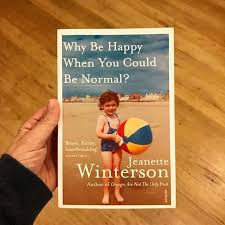
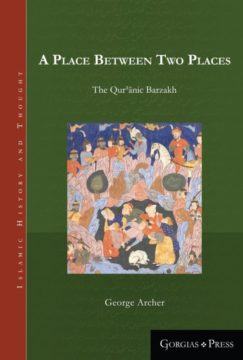
With the election of the first woman to the US office of vice president, and the availability of vaccines for covid-19, there is a sense of hope that the world may return soon to normal. But as the title of Jeanette Winterson’s memoir goes, “Why be happy when you can be normal?” There is a need to own our present. To let of the nostalgia of yesterday or the anxiety of tomorrow, and accept and acknowledge the situation we are in without hoping for the ‘old normal’ or loathing the ‘new normal’. As the German spiritual thinker Eckhart Tolle said, ‘The only thing that is ultimately real about our journey is the step that we are taking at that moment. That’s all there ever is.” Many Sufis believe that Barzakh can be pleasurable or unforgiving, in death as in life, depending on our perspective- it is what we make it to be. Even in this state, as we find ourselves suspended between hope and hopelessness, stuck between the pre and the post corona world, we must embrace the present. No one knows what 2021 will bring but perhaps it’s time to stop waiting for yesterday to come again.
